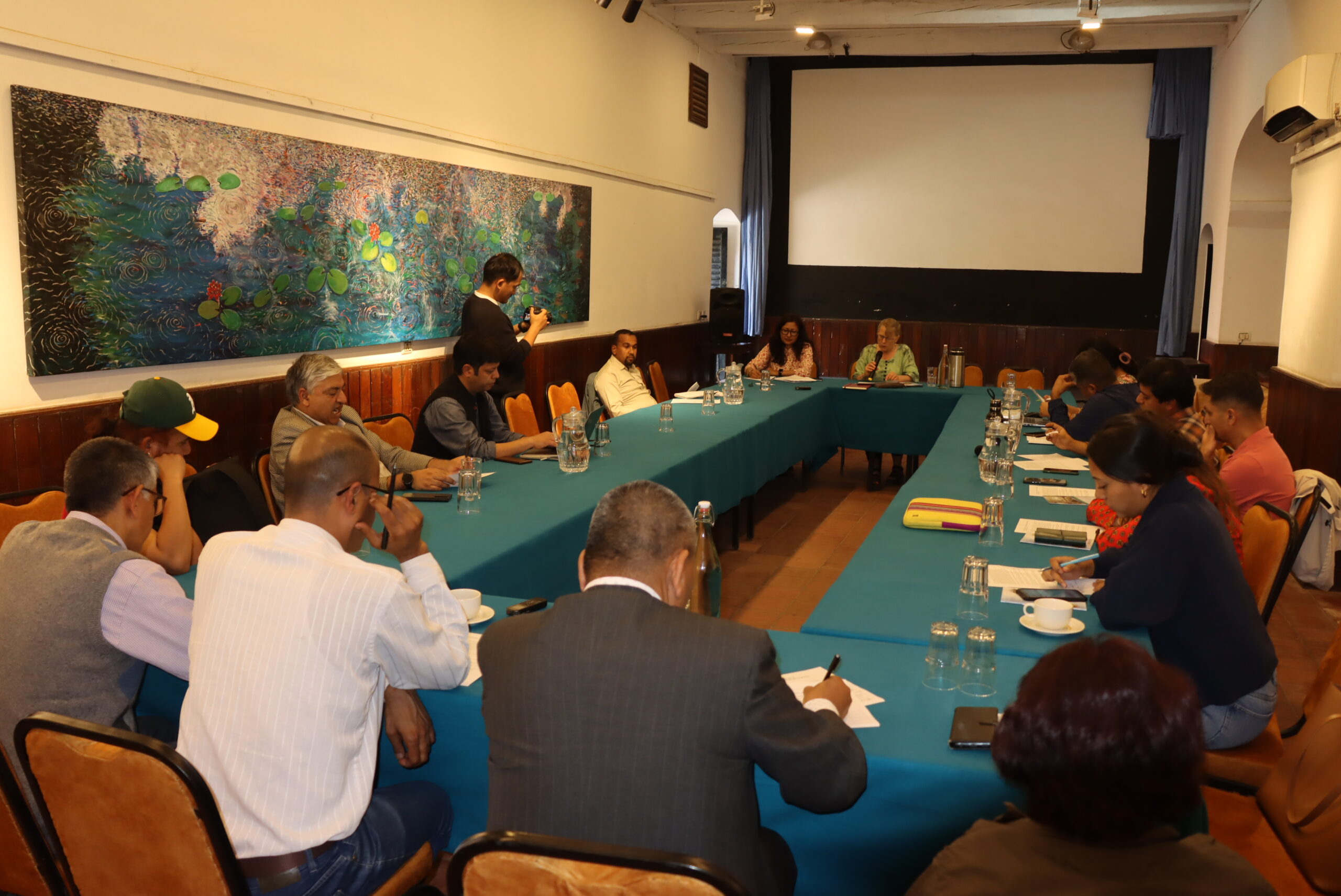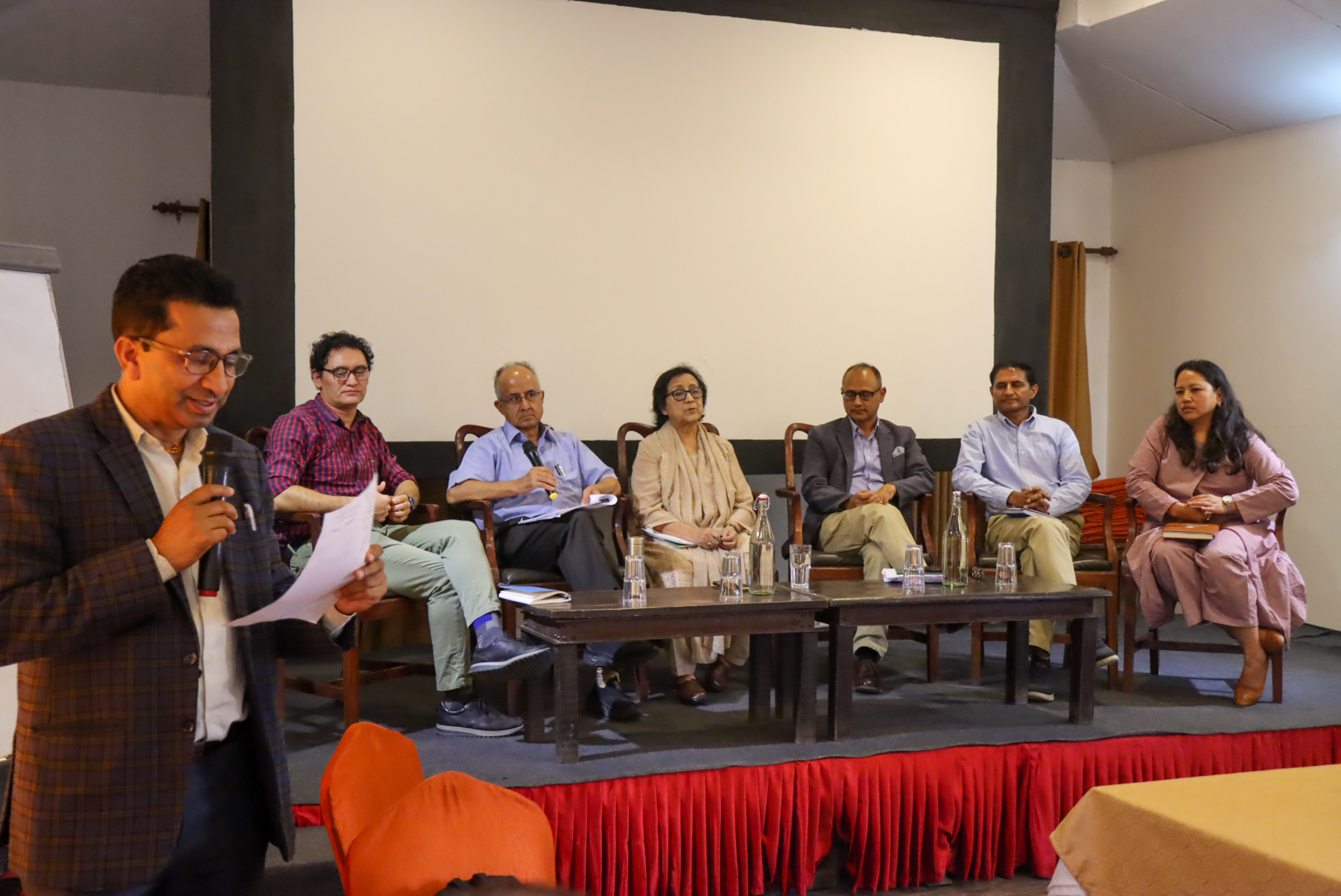Southasia Institute of Advanced Studies (SIAS) successfully organized a half-day Experts Consultation Meeting on 9th March 2023 at Dhokaima Café, Patan Dhoka. The consultation meeting aimed on identifying the challenges of effective policy implementation in the context of Nepal’s agriculture sector with a particular focus on its intended goal of gender equality and social inclusion. The event was participated by 14 participants that represented private sectors, government, I/NGOs, and academia.
The consultation started with a brief introduction of the participants followed by the introduction of SIAS and sharing of the program objective by Dr. Mani Ram Banjade. The consultation was divided into two sessions in which the first session highlighted the key issues in policy translation relating to the ground reality, followed by the second session on the discussion. During the first session, Dr. Banjade shared that the main theme of the research was to study what type of comprehensive framework (Ecosystem of Support) is required for Women’s Economic Empowerment (WEE). He also shared that despite of fancy policies on WEE, their implementation/translation at the grassroots level is challenging. He highlighted the existing provisions, subsidies, and policies the government has formulated for the WEE and the gaps in their implementation. He provided the context, though there is a GESI Policy prepared by the Ministry of Women, Children and Senior Citizens (MoWCSCs), it hasn’t been integrated with the sectoral policy and if they are integrated, they are not implemented.
Dr. Meeta S Pradhan facilitated the discussion session with input from the experts. At the start of the session, questions were shared among the participants to have further discussions. The discussion was primarily focused on why there is a challenge in policy implementation and what needs to be done to address these challenges.The participants shared about the lack of gender-focal person/department at local level thus posing a huge challenge for the implementation. The issues were also raised about the policies being donor and supply driven rather than demand driven and also the issues related to agriculture comes under multisectoral approach and hence cannot be addressed through sectoral policy. The participants stressed the importance of understanding policy formulation processes and its implementation through translation to the programs. Most of the participants also emphasized the need for capacity strengthening of the municipality as the local governments deliver services at the local level in the federal context. Further, delivery mechanism was also emphasized as it related to the issue of empowerment. During the discussion, the participants stressed on the need to review the coordination between the province and municipalities in the past five years. Similarly, participants also suggested that there needs to be an analysis of the Constitution, Act, and Policy from a top-down approach and the issue of implication/implementation from a bottom-up approach.
Towards the end of the event, Dr. Banjade summarized the key points from the discussion and formally ended the event by thanking participants for their valuable participation.




